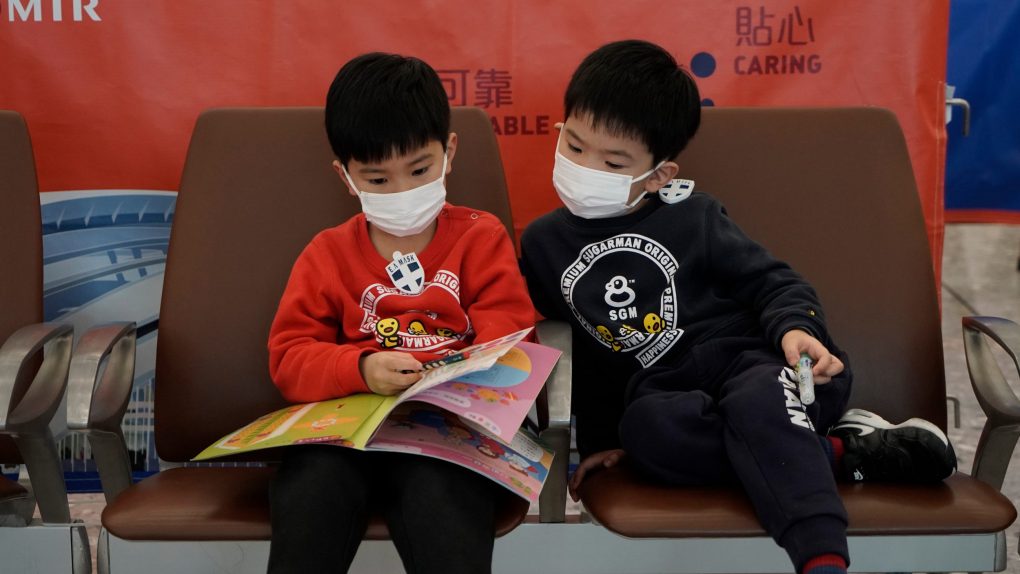- The novel coronavirus is particularly harmful to older patients and those people who suffer from preexisting medical conditions, but children can also get COVID-19, whether they show symptoms or not.
- Coronavirus symptoms in children can include cold-like symptoms such as fever, runny nose, and cough, according to the CDC.
- Severe COVID-19 cases have been rare in kids, but teens as young as 14 have died from the disease.
- Visit BGR’s homepage for more stories.
You often hear that it’s the elderly and immunocompromised who are the most at risk of experiencing a severe, possibly critical case of COVID-19. But everyone else can be infected and pass on the novel coronavirus to others, even children of any age. That’s why it’s essential to keep your kids at home, including teenagers, for as long as possible during the outbreak. You should also keep an eye on symptoms that may suggest a coronavirus infection, and ensure they get proper treatment.
The official CDC guidelines say that current evidence suggests “children do not appear to be at higher risk for COVID-19 than adults.” The organization also explains that the symptoms are similar in children and adults. As a reminder, COVID-19 doesn’t have a specific set of symptoms, although doctors have identified at least one unexpected sign that seems increasingly common: the loss of smell and taste. The CDC explains.
The symptoms of COVID-19 are similar in children and adults. However, children with confirmed COVID-19 have generally presented with mild symptoms. Reported symptoms in children include cold-like symptoms, such as fever, runny nose, and cough. Vomiting and diarrhea have also been reported.
The CDC also adds that it’s not known whether some children may be at a higher risk for severe illness, like kids with underlying medical conditions.
Separately, Harvard Medical School cites an extensive study from China that looked at COVID-19 infections and found that most cases are asymptomatic:
The best news in this study is that 90% of the [2,143] children had illness that was asymptomatic, mild, or moderate — as opposed to severe or critical. That means that even if the children were sick, with fever and cough, 90% did not have trouble breathing, need oxygen or need to be in the intensive care unit. While 4.4% were reported as asymptomatic, given that only a third had laboratory testing, it’s very likely that the actual number of asymptomatic infections in children during that time period was higher. Only one child died.
The study also showed that younger children are at risk of developing a more severe COVID-19 case. But the only child to have died of the ones observed in the study was a 14-year-old.
Teenagers died of COVID-19 in the USA and Europe as well. A 17-year-old in California died after being denied care because he didn’t have health insurance. Promising football player Jaquan Anderson, also 17, died in New Orleans. A 16-year-old from France was hospitalized on Monday with respiratory distress. By Tuesday evening, her condition was worsening at an alarming speed and she died. She had no known medical conditions.
The most recent COVID-19 case in a child comes from Illinois, where an infant younger then one year just died. “There has never before been a death associated with COVID-19 in an infant. A full investigation is underway to determine the cause of death,” IDPH Director Dr. Ngozi Ezike said. “We must do everything we can to prevent the spread of this deadly virus. If not to protect ourselves, but to protect those around us.”
Doctors warn that special attention to kids is required, even if they’re experiencing mild symptoms. A four-year-old was confirmed COVID-19 positive in Willacy County, and doctors have no idea how the child got the disease.
“When a person, or a child, is found in the community, we are worried that probably there are many other cases circulating in adults, and it’s reaching the point that the kids are getting sick,” Dr. Enrique Caceres told KRGV. Children can be a danger to their families and others, regardless of whether they show symptoms. Caceres advises parents to call a pediatrician first to explain symptoms if they suspect their kid is sick, before actually visiting the office.
Aside from the symptoms listed by the CDC, Harvard Medical School says parents should also be on the lookout for the following signs and seek medical help if any of them occur:
- Any trouble breathing — rapid or forceful breathing, pale or blue-colored skin, trouble eating or talking, or doing usual activities because of breathing problems
- A high fever you can’t get down (while nothing has been confirmed, there have been some concerns raised about using ibuprofen with COVID-19 — out of an abundance of caution, it’s best to use acetaminophen instead)
- Unusual sleepiness
- Pain or irritability you can’t soothe
- Trouble drinking or refusal to drink, and is making less urine








